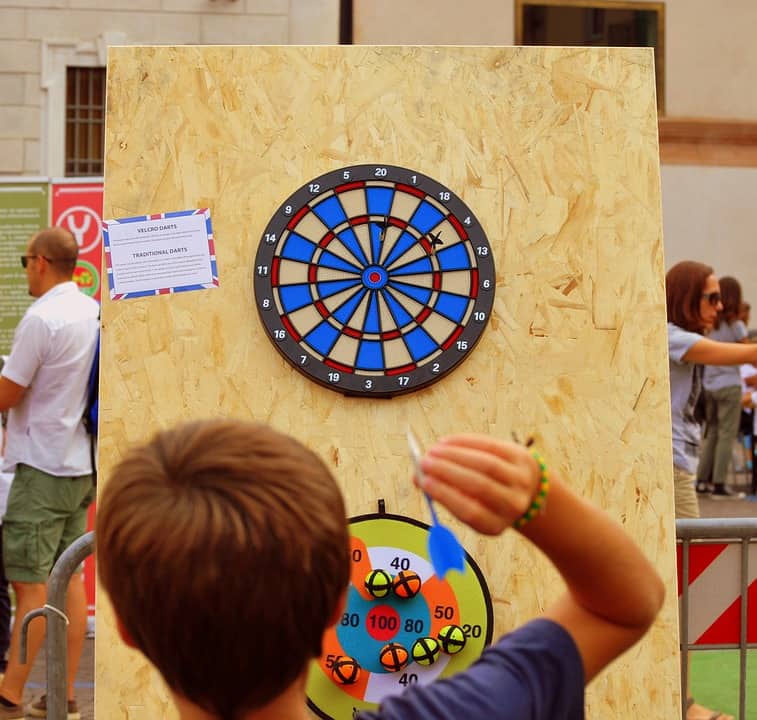All parents want their children to realise their full potential. Whether it’s academic, artistic or sporting achievements or simply becoming a well-rounded individual, the possibilities at such a young age are almost endless. That’s why it can sometimes be frustrating when children get distracted or become disheartened when attempting something challenging.
Goals can be a great way to help young, active minds stay focused on a more long-term objective. Having targets is very important when children start to mature, especially right now, as kids are stuck indoors and days can begin to feel repetitive.
While it’s easy to set goals for young kids, to be effective, your children should learn to set their own. Here, we look at some ways in which you can help kids to turn their wishes into ambitions.
Listen for Goals
As with any skill, setting longer-term goals is something that has to be learned. Often, children will have dreams and ambitions but not understand the need to create a path to achieving them. You can help them create the goals to make their aspirations achievable!
Have you ever heard your child say “I want to be them” or “I wish I could do that like my friend”? If you notice these kinds of remarks or see your child trying to achieve something, sometimes, this can be your child creating goals without them even realising.
If you see or hear these cues, speak to your child about what they want to achieve and devise a strategy. This way, you’ll be putting in place goals that your child is more likely to want to reach.

Help Children Break Down Their Dreams
When children set their ambitions for the first time, they can often be quite lofty. As with any goals, for children or adults, these grand dreams need to be divided into more manageable chunks.
If your child dreams of getting a particular score on a test, break down that goal into more gradual improvements over a longer period. Not only does this help motivate children for longer, but it also makes success more likely, which can inspire children to set even more challenges for themselves.
Create Cooperation, Not Competition
Setting goals is a great way to keep children motivated and focused, especially right now. However, as they are also developing as people, any targets must also have the right spirit.
Many goals that we create end up having an element of competition. Wanting to come first on a test is an example. Goals like this, while good on the surface, create an air of competitiveness which can lead to unwanted jealousy and distraction, especially if the goal isn’t achieved because of someone else’s success.
Instead of creating competitive goals, aim for cooperative goals that develop emotional intelligence. If your child wants to come first on a test, suggest changing that goal to a particular mark which can be achieved regardless of other people’s efforts. Little changes like this can help to keep children motivated and positive about their growth, while also remaining supportive of others.

Offer Honesty and Support
Once a goal has been set, including smaller steps to achieve it, the hard work for children begins. When kids first try something new or set a challenge they previously hadn’t completed, it’s inevitable that not every moment will go to plan.
It can be hard for children when they hit a stumbling block in pursuit of their goals. Sometimes, they can become disheartened and give up too early. You must offer support throughout their learning process, but that should also be paired with honesty.
If your child is trying to learn an instrument, for example, explain that there will be days where progress is slow. Explain that these moments are normal and offer them tools to help pass them. Your child can also learn from your own experiences of learning something new. By sharing this honesty and support, your child is more likely to stick to their goals through any rough patches.
For more advice, read our blog on how to react when children make mistakes.
Praise Effort
Arguably the most crucial part of supporting your child’s goals is applauding their efforts. Remember that the most effective goals are those set by the child, so instead of making the process feel like a chore, simply praise them when they go out of their way to practise. This positive reinforcement will help inspire them to stay self-motivated and disciplined, traits that are vital to success in everyday life.

Having goals is a vital part of home life for young children, and this advice can help if you’re looking to support your child’s ambitions! Here at St Peter’s Prep, we are helping to support our children through this challenging time by curating unique online learning courses that help them continue their development at home.
Target setting is a big part of St Peter’s School Baccalaureate® and this is something that pupils and teachers do together on a regular basis. If you’ve ever wondered about the cost of preparatory schools like ours, take a look at our website.










